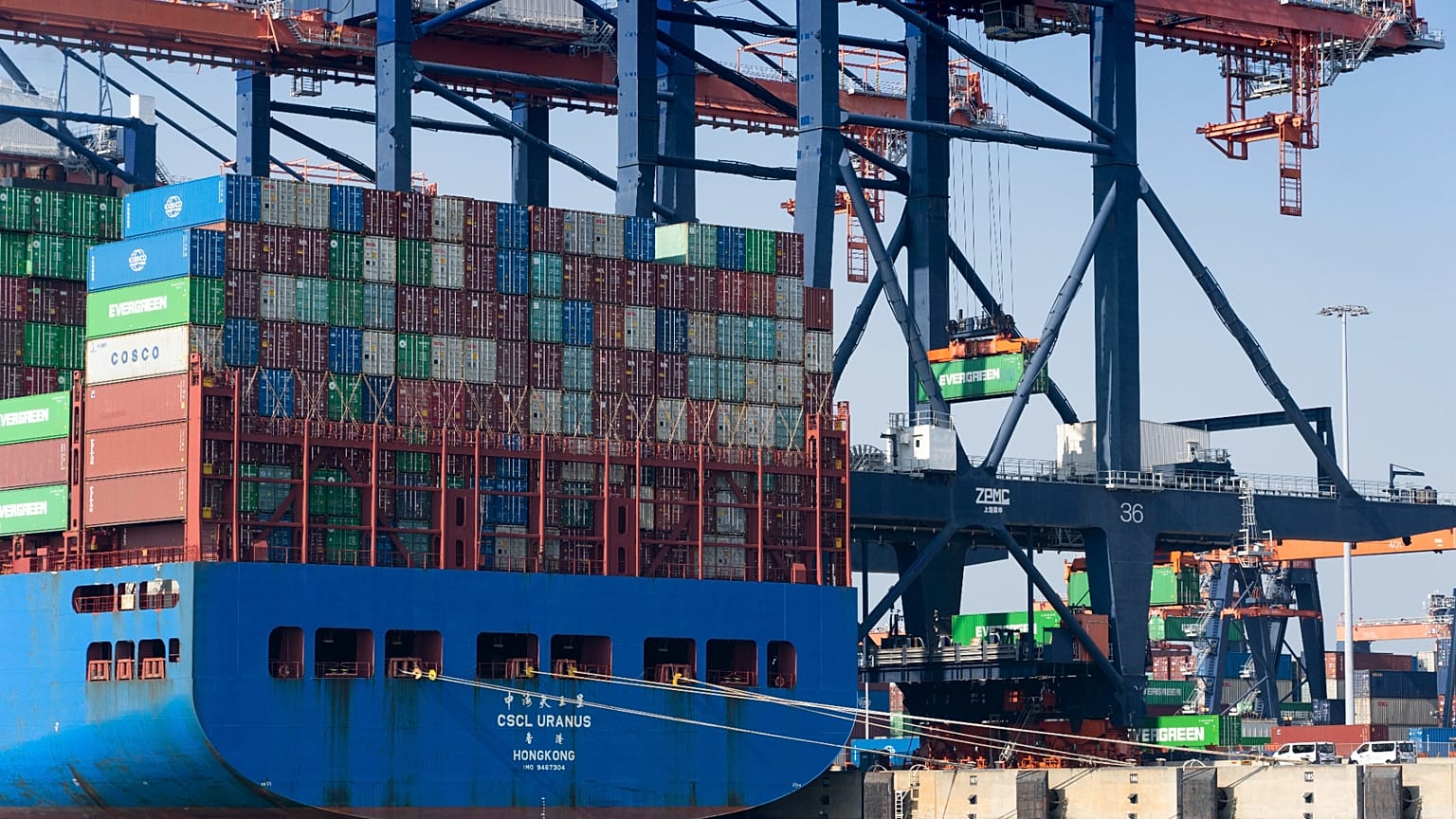Top Stories
EU Seeks to Eliminate Trade Barriers with Mediterranean Partners

The European Union (EU) is working to strengthen economic ties with Mediterranean nations by proposing the abolition of trade barriers with selected North African and Middle Eastern countries. This initiative, outlined in a forthcoming strategic agreement known as the Pact for the Mediterranean, aims to enhance integration in response to shifting geopolitical dynamics, particularly with traditional allies like the United States and China.
According to a document from the European Commission reviewed by Euronews, several EU member states are advocating for these changes to align Mediterranean partners with EU single market regulations. The pact is anticipated to be officially presented by the EU executive in mid-October 2023.
The proposal encompasses a range of countries, including Algeria, Egypt, Israel, Jordan, Lebanon, Libya, Morocco, Palestine, Tunisia, and Syria. The European Commission, led by Ursula von der Leyen, emphasizes the need for diversifying trade relationships, particularly in light of the EU’s growing concerns about reliance on Russia and China for essential goods and services.
Strengthening Economic Ties
The Pact for the Mediterranean aims to combine existing agreements with new bilateral arrangements across various sectors. Member states are pushing for the modernization of current trade treaties and the elimination of barriers that hinder economic collaboration. The document notes that many states advocate for alignment with the EU’s Single Market rules and support for convergence in sectors such as digital technology, energy, environmental standards, and labor regulations.
This is not the first attempt by the EU to foster trade integration among Mediterranean nations. The 1995 Barcelona Declaration aimed to establish a Euro-Mediterranean Free Trade Area (EMFTA), but this initiative has yet to materialize fully. Currently, the EU has preferential trade agreements with Mediterranean countries through the Pan-Euro-Mediterranean Preferential Rule of Origin, known as the PEM Convention.
The new proposal indicates a desire among EU member states to enhance trade connections beyond the existing framework. The document reveals that some members highlight the importance of inclusive trade practices, lower tariffs, and practical market access facilitated by initiatives like Global Gateway and the PEM Convention.
Regulatory Alignment and Market Access
The emphasis on regulatory alignment is significant, with Mediterranean partners expressing a strong interest in harmonizing regulations to attract investment and develop joint value chains, particularly in digital, transportation, and clean energy sectors. Proposed strategies include cross-border agro-industrial value chains, customs modernization, and green label export schemes, which aim to simplify trade procedures and support small and medium-sized enterprises (SMEs).
The document also highlights the necessity of easing non-tariff barriers and suggests structured dialogues to achieve these goals. Aligning with the EU’s digital governance and customs systems is a priority for partner countries, with proposals for laws inspired by the General Data Protection Regulation and the development of e-government tools.
Additionally, there is a specific focus on clean energy and environmental standards, with a group of partner countries prioritizing convergence in these areas to foster sustainable development within the region.
The upcoming discussions surrounding the Pact for the Mediterranean reflect a strategic effort by the EU to bolster economic relationships in the Mediterranean region, ensuring that trade practices evolve to meet contemporary challenges and opportunities. As the presentation date approaches, the outcome of these negotiations could significantly influence trade dynamics between the EU and its Mediterranean partners.
-

 Top Stories1 month ago
Top Stories1 month agoTributes Surge for 9-Year-Old Leon Briody After Cancer Battle
-

 Entertainment3 months ago
Entertainment3 months agoAimee Osbourne Joins Family for Emotional Tribute to Ozzy
-

 Politics3 months ago
Politics3 months agoDanny Healy-Rae Considers Complaint After Altercation with Garda
-

 Top Stories2 months ago
Top Stories2 months agoIreland Enjoys Summer Heat as Hurricane Erin Approaches Atlantic
-

 World3 months ago
World3 months agoHawaii Commemorates 80 Years Since Hiroshima Bombing with Ceremony
-

 Top Stories3 months ago
Top Stories3 months agoFianna Fáil TDs Urgently Consider Maire Geoghegan-Quinn for Presidency
-

 World3 months ago
World3 months agoGaza Aid Distribution Tragedy: 20 Killed Amid Ongoing Violence
-

 World3 months ago
World3 months agoCouple Convicted of Murdering Two-Year-Old Grandson in Wales
-

 Top Stories4 weeks ago
Top Stories4 weeks agoNewcastle West Woman Patricia Foley Found Safe After Urgent Search
-

 Top Stories2 months ago
Top Stories2 months agoHike Donegal’s Errigal Mountain NOW for Unforgettable Summer Views
-

 Top Stories2 months ago
Top Stories2 months agoClimbing Errigal: A Must-Do Summer Adventure in Donegal
-

 World3 months ago
World3 months agoAristocrat Constance Marten and Partner Convicted of Infant Murder









